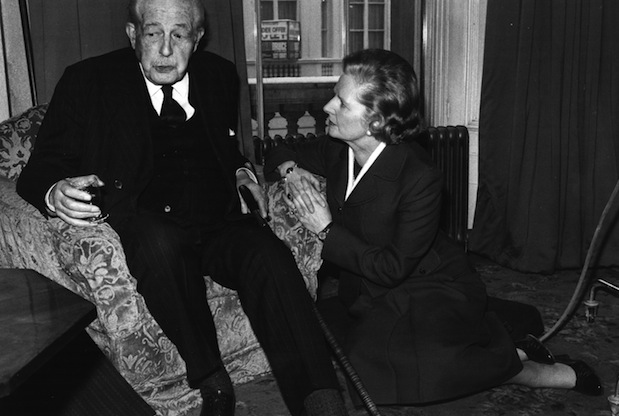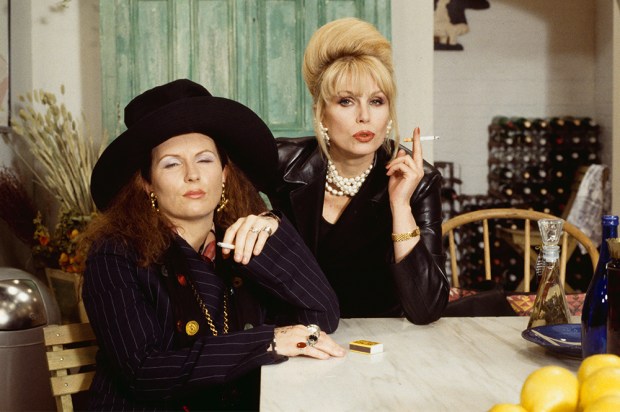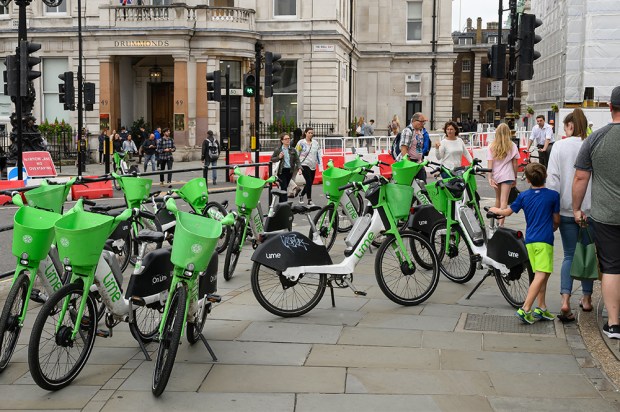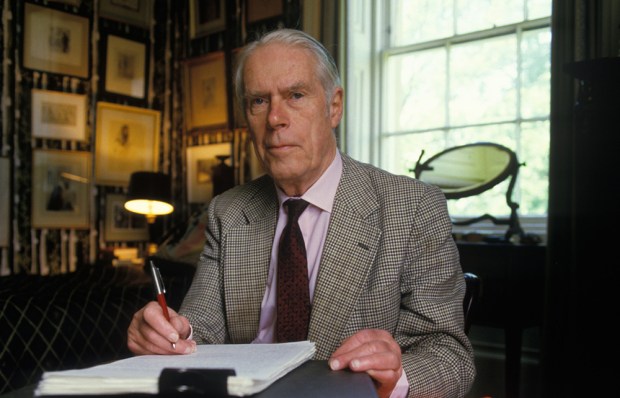You have to hand it to Supermac. Fifty years after the event, he is still running rings round them. The esteemed Vernon Bogdanor (The Spectator, 18 January) tells us that Iain Macleod was wrong in claiming that Sir Alec had been foisted on the Conservative party by a magic circle of Old Etonians. On the contrary, the soundings had ‘revealed a strong consensus for Home. So Macmillan was not slipping in a personal recommendation when he advised the Queen to send for him — he was doing precisely what he was supposed to do.’
This is a deliciously selective account. When Macmillan decided to resign in October 1963, not because he had prostate cancer (he didn’t and knew he didn’t, but he was tired and welcomed the excuse to get out), Tory MPs and Cabinet ministers were originally asked three questions about his successor: who’s your first choice, who’s your second and who would you oppose? Then Hailsham, Macmillan’s original preference, made a fool of himself at Blackpool, and Macmillan added a fourth question: what about Lord Home? This nudge was designed to create the impression that there was a groundswell for Sir Alec. There wasn’t, apart from the one created by Macmillan’s own wave machine.
The point is that the Prime Minister himself was well aware of this. On the day when the Lord Chancellor and the chief whip had begun quizzing their colleagues again, he noted in his diary that ‘the basic situation was the same — the party in the country wants Hogg; the Parliamentary Party wants Maudling or Butler; the Cabinet wants Butler. The last ten days have not altered this fundamental fact.’ No mention of Home at all, but Home was what the poor mutts got, only three days later.
Never was a card more adroitly pressed on a gullible audience. Even Professor Bogdanor once described what happened as ‘guided democracy’. Iain Macleod was at least half-right. There wasn’t a magic circle. But there was a magician.
The film world seems to have the memory of a mayfly. I’ve lost count of the times I’ve read that 12 Years a Slave is Hollywood’s first attempt to confront the awful reality of slavery. My researches (oh all right then, Wikipedia) reveal that there have been at least 28 major films more or less about slavery in the United States. I have not counted the various versions of Uncle Tom’s Cabin, which was the most filmed story in the silent era.
The plots are not dissimilar: the good master, Shelby/Cumberbatch, is forced to sell the hero, Tom/Solomon, who ends up with the bad master, Simon Legree/Fassbender. You could argue that Uncle Tom is actually tougher, because Legree has Tom killed, whereas Solomon Northrup, untypically, is freed. Harriet Beecher Stowe used Northrup’s narrative to prove she was telling the truth. Me, I’d rather listen to Paul Robeson singing ‘Ol’ Man River’.
Peter Pears singing about the merry ploughboy was one of the few records we possessed when I was a child. Ever since, I have had a low-key aversion to the music of Benjamin Britten. And I managed to get through most of his centenary year without listening to a note of it. Then in the dark days of December I went to a performance of his St Nicholas cantata in a Holborn church, and I was greatly moved, transported even. Music that had once sounded slushy and strangulated to my untutored ear now struck me as ethereal. Of course my conversion could have something to do with the fact that my grandson was one of the singers.
Ed Miliband has inherited a nasty habit from Tony Blair. The verbless sentence. The unattached soundbite. Like that. His heralded speech on the cost of living and banking reform was full of them. ‘Not lending to firms. Poor customer service. High charges. The old economy. The next Labour government will act.’ But act how and why? The absence of visible connected thought on such a difficult subject, in which almost any initiative is likely to provoke perverse consequences, is truly terrifying.
As it happens, I didn’t think much of Ed’s miracle recipe for making the bankers serve their customers rather than themselves. It sounded like one of those schemes Tony Benn used to dream up in the 1970s after half a dozen mugs of tea.
Is it really the government’s business to start inventing new high street banks? We are endlessly told that bookshops, record shops and shoe shops are due to disappear, so why not money shops too? Moolah needs no personal inspection. The future lies on the net, with peer-to-peer lending and the dull sort of small banks which the rich already enjoy (Hoare’s, Wetherby’s) where they don’t take silly risks with your savings. Every time I pass a branch of Barclays which has been turned into a Pizza Express, my heart leaps a little.
Got something to add? Join the discussion and comment below.
Get 10 issues for just $10
Subscribe to The Spectator Australia today for the next 10 magazine issues, plus full online access, for just $10.
Ferdinand Mount is a former political columnist for The Spectator, and edited the Times Literary Supplement from 1991 to 2002. His books include Cold Cream and The New Few.
You might disagree with half of it, but you’ll enjoy reading all of it. Try your first month for free, then just $2 a week for the remainder of your first year.














Comments
Don't miss out
Join the conversation with other Spectator Australia readers. Subscribe to leave a comment.
SUBSCRIBEAlready a subscriber? Log in